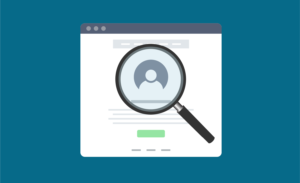How to Find Out Who Links to Your Website: A Guide to Backlink Discovery
How to Find Out Who Links to Your Website: A Guide to Backlink Discovery
Blog Article
Backlinks—when other websites link to yours—are just about the most important signals search engines like Google use to find out your site's authority and ranking. But how are you aware who’s linking to your website? Whether you're tracking your SEO progress, checking for spam links, or exploring potential partnerships, knowing your backlinks is important.
This guide covers why backlinks matter, and find out who links to my site using free and paid tools.
???? Why It’s Important to Track Who Links to Your Website
SEO Performance: Quality backlinks improve your search engine rankings.
Reputation Monitoring: Know how your website is being referenced by whom.
Partnership Opportunities: Reach out to sites linking to you for collaboration.
Spam Detection: Identify harmful or toxic backlinks that will hurt your rankings.
Content Strategy: Understand what content attracts links and replicate success.
???? Tools to Find Out Who Links to Your Website
1. Google Search Console (Free)
Best for: Basic backlink checking
Go to Google Search Console.
Under the “Links” section, see:
Top linking sites
Top linked pages
Anchor text used
Pros:
Completely free
Direct data from Google
Cons:
Limited detail and metrics
Doesn’t show competitor backlinks
2. Ahrefs (Paid, with Free Backlink Checker)
Best for: Deep backlink analysis
Use Ahrefs’ Free Backlink Checker or join full features.
Shows:
Referring domains
Anchor text
Link type (dofollow/nofollow)
Domain rating (DR)
Pros:
In-depth, real-time data
Useful SEO metrics
Easy to use
Cons:
Expensive for full access
3. SEMrush (Paid, Free Trial Available)
Best for: Professional backlink audits
Use the Backlink Analytics tool.
Offers:
Toxic backlink alerts
New & lost links
Link-building opportunities
Pros:
Detailed reporting
SEO audit integration
Cons:
Premium pricing
4. Moz Link Explorer (Free Limited Use)
Best for: Beginners and quick insights
Visit Moz Link Explorer
See:
Inbound links
Page authority
Linking domains
Pros:
Clean interface
Authority metrics included
Cons:
Limited daily queries with no subscription
5. Ubersuggest (Free with Limited Use)
Best for: New web owners and bloggers
Offers backlink data and SEO suggestions
View referring domains and link type
Pros:
Free version available
Beginner-friendly
Cons:
Less comprehensive than Ahrefs or SEMrush
Set up alerts: Use Google Alerts or tools like Mention to have notified when your brand or site is mentioned online.
Disavow harmful links: If you spot spammy backlinks, consider disavowing them using Google’s Disavow Tool (provided that they affect rankings).
Track competitors: See who links for your competitors and reach out for similar backlinks.
Knowing who links to your website is essential for managing your SEO strategy, building authority, and protecting your internet reputation. Start with Google Search Console for any free overview, and graduate to tools like Ahrefs or SEMrush for professional insights.